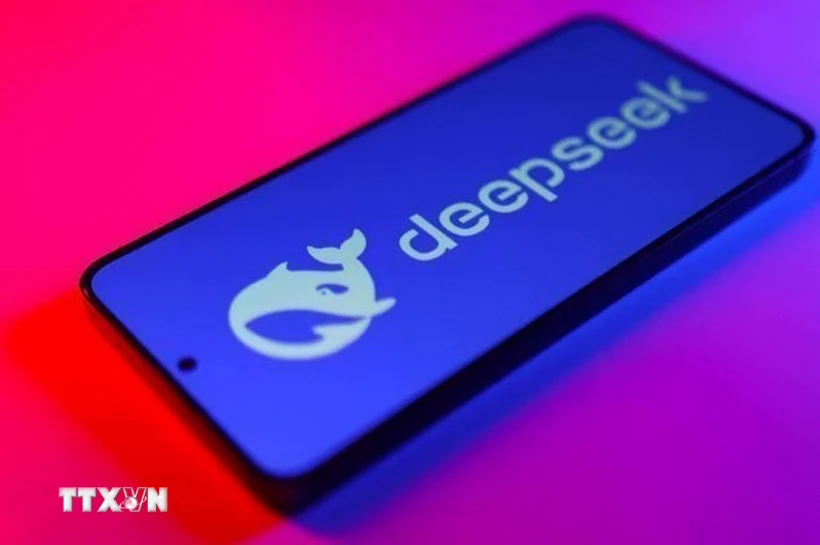
Deepseek's logo. (Photo: REUTERS/TTXVN)
In the context of artificial intelligence (AI) "giants" such as OpenAI, Google or Anthropic dominating the market, a new name from China - DeepSeek - has caught the attention of the entire technology industry.
With the R1 model, DeepSeek not only breaks the monopoly of the "big guys" but also raises a big question: Is AI still a playground reserved for trillion-dollar corporations?
Since late 2022, AI assistants such as ChatGPT (from OpenAI), Claude (from Anthropic) or Gemini (from Google) have dominated the market thanks to huge investments in engineering teams, data centers and advanced AI chips.
However, DeepSeek unexpectedly entered the race with the groundbreaking R1 model with a development cost of only 6 million USD - a shocking number compared to the billions of USD of its competitors.
Although many experts have expressed doubts about the true cost of DeepSeek, the emergence of this model still raises debates: Is AI becoming a common commodity, instead of a high-end technology reserved only for giant corporations?
“The first companies in this space always have to spend a lot to get ahead,” said Angelo Zino, an analyst at research firm CFRA. “But the newcomers can do the same thing cheaper and faster.”
At the HumanX AI conference in Las Vegas (USA) last week, Mr. Thomas Wolf - co-founder of the company Hugging Face (specializing in developing computational tools to build applications using machine learning) - said that the cost of developing AI is decreasing, and more importantly, users are no longer too concerned about which model they are using.
“We are entering a multi-model world and that is a good thing,” Mr. Wolf commented, pointing to the market’s relatively muted reaction to the latest version of ChatGPT.
However, OpenAI does not easily accept this view. Mr. Kevin Weil - OpenAI's product manager - asserts that not all AI models are the same.
“We may not have the 12-month lead we had before, but a three- to six-month lead is still valuable,” he said. With more than 400 million users, OpenAI has the advantage of collecting massive amounts of data to continuously improve its models.
Mr. Fen Zhao - Research Director at Alpha Edison, compared OpenAI with Google, as both have become familiar names in the minds of users.
Improvements in chip technology and algorithm optimization have reduced the cost of AI development, but the race still requires massive capital. Open source models are driving faster innovation, but closed-loop companies like OpenAI and Anthropic are facing enormous financial pressure.
Last February, Japanese investment group SoftBank poured $40 billion into OpenAI, raising the company’s valuation to $300 billion, nearly double that of last year. But with a “cash burn” rate of up to $1 billion per month, OpenAI still needs to continuously raise capital.
Meanwhile, Anthropic is not to be outdone, having just raised $3.5 billion in March, reaching a valuation of $61.5 billion.
“If you’re spending $1 billion a month, you’re going to have to keep raising money,” said Jai Das of Sapphire Ventures. “I don’t see them getting to profitability any time soon beyond that level of spending.”
With the rise of new forces like DeepSeek and the gradual shift to a multi-model AI world, the future picture of the AI industry is changing by the day.
The race is no longer just about the big guys "burning money" to gain the upper hand, but is opening up opportunities for smarter, more flexible competitors./.
Source: https://www.vietnamplus.vn/tri-tue-nhan-tao-khi-deepseek-dinh-hinh-lai-the-co-post1020961.vnp


![[Photo] General Secretary To Lam, Secretary of the Central Military Commission attends the 12th Party Congress of the Army](https://vphoto.vietnam.vn/thumb/1200x675/vietnam/resource/IMAGE/2025/9/30/9b63aaa37ddb472ead84e3870a8ae825)
![[Photo] President Luong Cuong receives President of the Cuban National Assembly Esteban Lazo Hernandez](https://vphoto.vietnam.vn/thumb/1200x675/vietnam/resource/IMAGE/2025/9/30/4d38932911c24f6ea1936252bd5427fa)
![[Photo] Panorama of the cable-stayed bridge, the final bottleneck of the Ben Luc-Long Thanh expressway](https://vphoto.vietnam.vn/thumb/1200x675/vietnam/resource/IMAGE/2025/9/30/391fdf21025541d6b2f092e49a17243f)

![[Photo] The 1st Congress of Phu Tho Provincial Party Committee, term 2025-2030](https://vphoto.vietnam.vn/thumb/1200x675/vietnam/resource/IMAGE/2025/9/30/1507da06216649bba8a1ce6251816820)
![[Photo] Solemn opening of the 12th Military Party Congress for the 2025-2030 term](https://vphoto.vietnam.vn/thumb/1200x675/vietnam/resource/IMAGE/2025/9/30/2cd383b3130d41a1a4b5ace0d5eb989d)
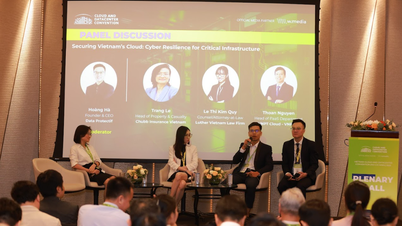


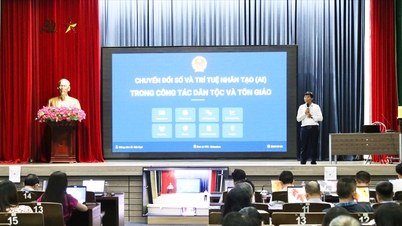








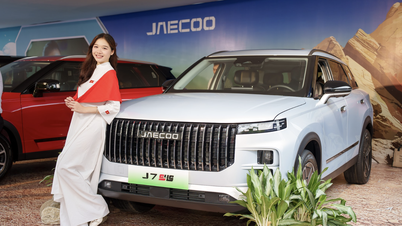

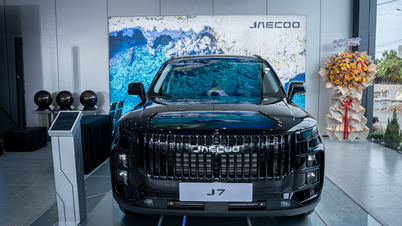

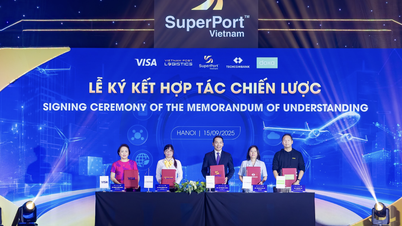





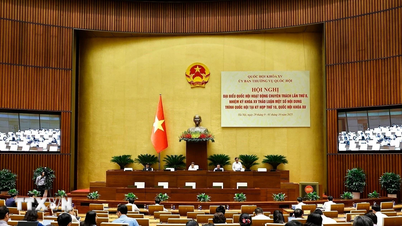
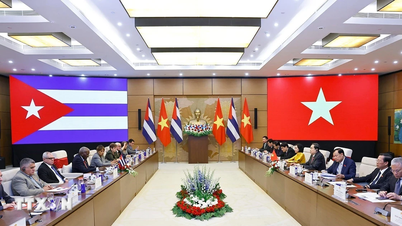


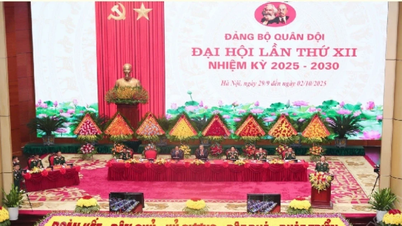
















































![[Infographic] Key tasks in the 2025-2030 term of Dong Nai province](https://vphoto.vietnam.vn/thumb/402x226/vietnam/resource/IMAGE/2025/9/30/59bd43f4437a483099313af036fef0db)


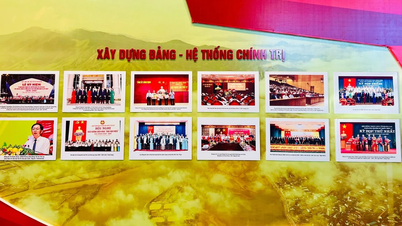















Comment (0)